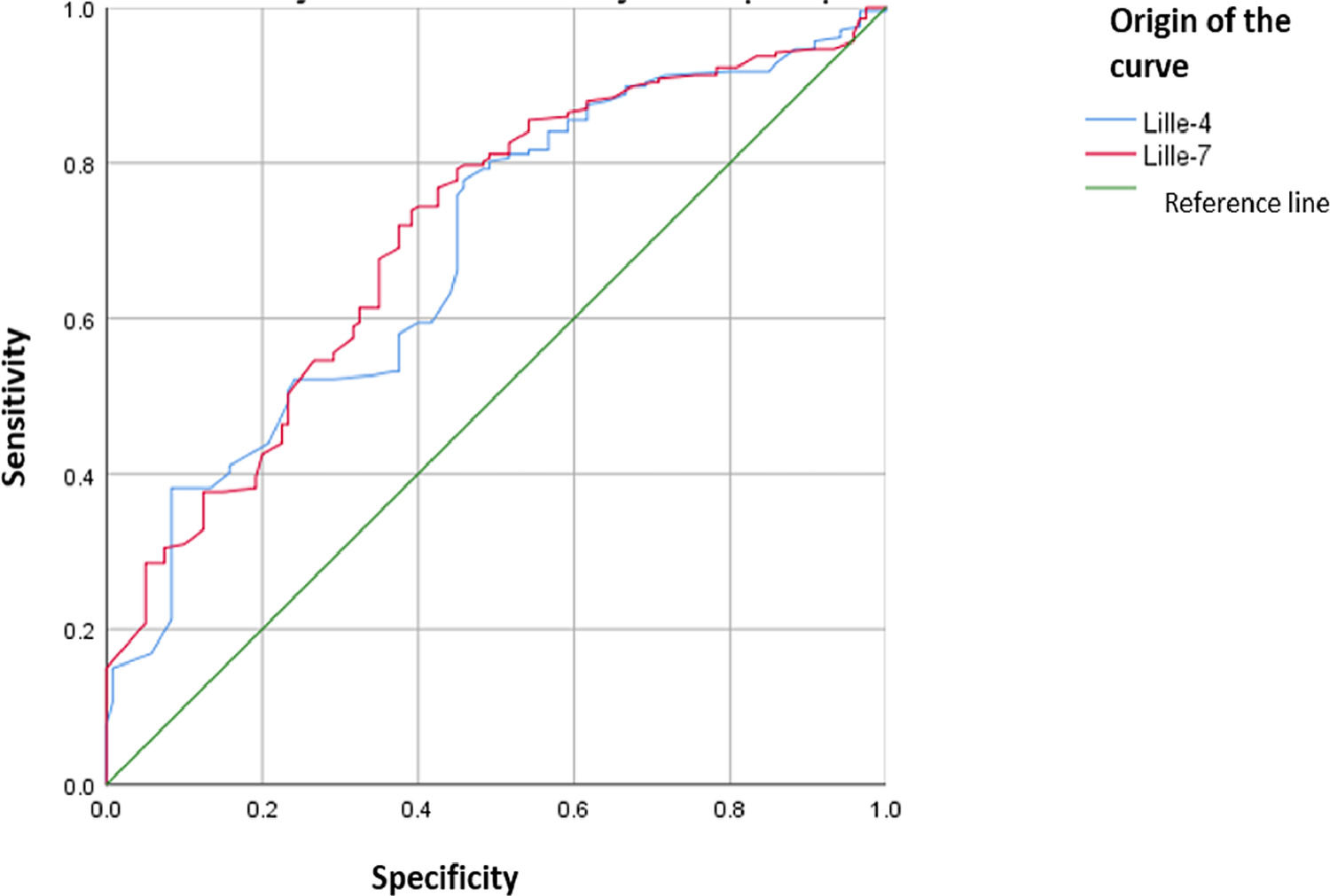
Abstracts Asociación Mexicana del Hígado (AMH) 2023
More infoAlcoholic hepatitis (AH) is an acute liver inflammation associated with excessive alcohol consumption. The pharmacological treatment for AH is corticosteroids. There is a study that has proposed calculating the Lille model on day 4 (Lille-4), which apparently has comparable accuracy to the Lille model calculated on day 7 (Lille-7). However, this finding has not been validated. Therefore our objective is to determine if Lille-4 is equivalent to Lille-7 in predicting 28-day mortality in patients with probable severe alcoholic hepatitis (AH) as defined by the 2016 consortium criteria sponsored by NIAAA.
Materials and PatientsObservational, prospective, ambidirectional, analytical cohort study conducted from January 2010 to April 2023. We collected clinical and biochemical variables upon admission, calculated Lille models, assessed response and 28-day mortality. Comparative analyses were performed based on survival versus mortality. Sensitivity, specificity, PPV, NPV, and accuracy of the models were calculated.
ResultsA total of 327 patients were included, 297 (90.8%) being male. Mean age was 43.4±9.3 years. The 50th percentile for alcohol consumption was 320 g/day (5th-95th percentile: 100.8-662). At day 28, 207 patients (63.3%) died. Upon admission, the patients who died showed a significant difference compared to survivors in: Maddrey (90 [95%CI: 81-99] vs. 70 [95%CI:65-75]; p<0.0001); ABIC (8.8±1.8 vs. 8.1±1.3; p<0.0001); MELD (32±8 vs. 27±4; p<0.0001); MELD-Na (33±6 vs. 30±4; p<0.0001). Lille-7 model had an AUROC of 0.71 [0.65-0.77], where a value >0.45 had a sensitivity (S) of 78% and specificity (E) of 45% in predicting early mortality. Lille-4 model had an AUROC of 0.68 [0.63-0.74], where a value >0.45 had an S of 81% and E of 54% (Figure 1).
ConclusionsLille-7 is the model with the highest accuracy, according to the obtained AUROC, for predicting early mortality in severe alcoholic hepatitis (AH). Therefore, the determination of total bilirubin should not be done prematurely (before day 7), and steroid therapy should be provided to patients for up to 7 days to classify treatment response.
Ethical statement
The protocol was registered and approved by the Ethics Committee. The identity of the patients is protected. Consentment was obtained.
Declaration of interests
None
Funding
None
Figure 1. Area Under the Receiver Operating Characteristic Curve (AUROC) of Lille-4 and Lille-7 for predicting 28-day mortality.










